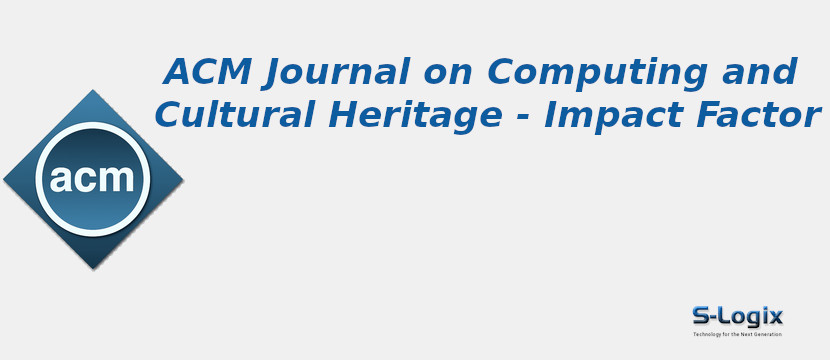Journal Home: Journal Homepage
Editor-in-Chief: Karina Rodriguez Echavarria
Print ISSN: 1556-4673
Electronic ISSN: 1556-4711
Abstracting and Indexing: Science Citation Index Expanded, Scopus.
Imapct Factor 2024: 2.2
Subject Area and Category: Arts, Computer Sciences, Library & Information Science
Publication Frequency: Annual
H Index: 41
Q1: Conservation
Q2:
Q3:
Q4:
Cite Score: 5.2
SNIP: 1.491
Journal Rank(SJR): 0.580
Latest Articles: Latest Articles in ACM Journal on Computing and Cultural Heritage
Guidelines for Authors: ACM Journal on Computing and Cultural Heritage Author Guidelines
Paper Submissions: Paper Submissions in ACM Journal on Computing and Cultural Heritage
Publisher: ACM-Association for Computing Machinery New York
Country: USA
